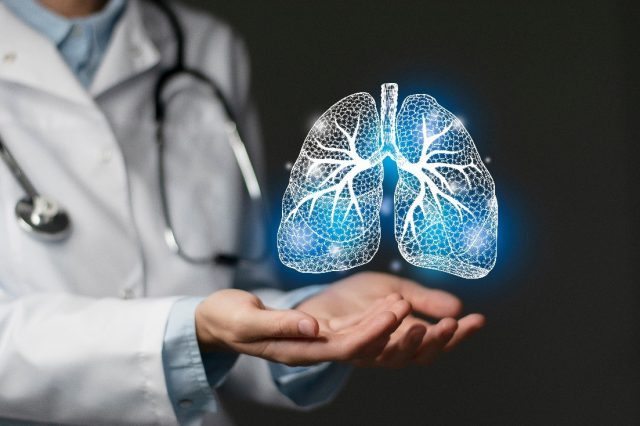In the landscape of public health, Genesis Reference Laboratories believes the importance of timely and accurate testing for respiratory pathogens cannot be overstated. As we navigate through these seasons marked by influenza, grapple with the ongoing challenges of COVID-19, and confront other respiratory viruses like RSV (Respiratory Syncytial Virus), understanding and controlling these pathogens becomes crucial. This article from Genesis Reference Laboratories delves into why testing is not just a medical procedure but a cornerstone in managing and mitigating the impact of these widespread respiratory illnesses.
Genesis Reference Laboratories on Understanding Respiratory Pathogens
Before delving into the significance of testing, it’s essential to understand what we’re up against. RSV, COVID-19, and influenza are all respiratory pathogens, but they differ in several ways.
RSV
Genesis Reference Laboratories notes that Respiratory Syncytial Virus (RSV), is a prevalent respiratory virus that typically manifests as mild, cold-like symptoms, including coughing, sneezing, and fever. Despite its usual mild nature, RSV can pose significant health risks, especially to certain vulnerable groups. Infants and older adults are particularly susceptible to severe RSV infections. In these groups, RSV can lead to more serious respiratory conditions such as bronchiolitis – an inflammation of the small airways in the lung – and pneumonia, an infection that inflames the air sacs in one or both lungs. These complications can require hospitalization and can be life-threatening in severe cases. The virus is highly contagious, spreading through respiratory droplets when an infected person coughs or sneezes. It’s also transferable via surfaces, like doorknobs, where the virus can survive for several hours. Prevention measures include frequent hand washing, avoiding close contact with sick individuals, and cleaning frequently touched surfaces. For high-risk groups, medical professionals might recommend additional precautions, such as RSV monoclonal antibody therapy, to prevent severe RSV disease.
COVID-19
COVID-19, which is caused by the novel coronavirus SARS-CoV-2, has had a profound impact on the global health landscape since it first emerged. This highly infectious disease affects individuals of all ages and can lead to a wide range of symptoms, including fever, cough, shortness of breath, fatigue, body aches, loss of smell or taste, sore throat, and headache. In some cases, COVID-19 can lead to severe respiratory problems, particularly in certain demographics such as the elderly or those with underlying health conditions.
Influenza
Influenza, or the flu, is a viral respiratory infection which is highly contagious and can spread through coughing, sneezing or touching contaminated surfaces. The virus can mutate frequently, making it challenging to develop a long-lasting immunity against it. The flu can affect people of all ages, but the severity of the symptoms varies from person to person. Common symptoms include fever, cough, sore throat, runny or stuffy nose, body aches, headache and fatigue. Although most people recover from the flu within a week or two, certain groups such as young children, elderly individuals, pregnant women and people with chronic medical conditions are at a higher risk of developing complications such as pneumonia, bronchitis, sinus infections or worsening of existing health problems. It is recommended to get a flu vaccine every year to reduce the risk of getting infected. Additionally, practicing good hygiene such as washing hands frequently, avoiding close contact with sick people and covering mouth and nose while coughing or sneezing can also help prevent the spread of the flu.
Genesis Reference Laboratories on The Importance of Testing
The pivotal role of testing in managing these pathogens is multi-faceted:
Accurate Diagnosis
Testing allows for the accurate identification of the pathogen causing the illness. This is crucial since symptoms of RSV, COVID-19, influenza, and other respiratory pathogens can be similar, but their treatments differ.
Informed Treatment
Once the pathogen is identified healthcare providers can administer the most effective treatment. For instance, there are different antiviral drugs that can be used for influenza versus COVID-19.
Preventing Spread
Genesis Reference Laboratories explains that identifying the specific pathogen helps in implementing targeted public health measures to prevent its spread. For example, quarantine measures are more stringent for COVID-19 than for the common cold. With all respiratory viruses it is important to take preventative measures such as wearing a mask, practicing social distancing, and washing hands frequently to slow the spread.
Surveillance and Response
Testing contributes to surveillance systems that track the prevalence and spread of these viruses. This data can be crucial for public health responses, including vaccine development and distribution strategies.
Public Health Education
Awareness of the prevalence of certain pathogens can guide public health education, leading to more informed communities that can take preventive measures, like vaccination or hygiene practices, more seriously.
In conclusion, Genesis Reference Laboratories believes that testing for respiratory pathogens like RSV, COVID-19, and influenza is not just a clinical tool but a critical element in controlling the spread and impact of these illnesses. By enabling accurate diagnosis, guiding effective treatment, and informing public health strategies, testing stands as a key defense in our ongoing battle against respiratory pathogens. As we continue to face these health challenges, the role of testing will remain indispensable in safeguarding public health and well-being.








